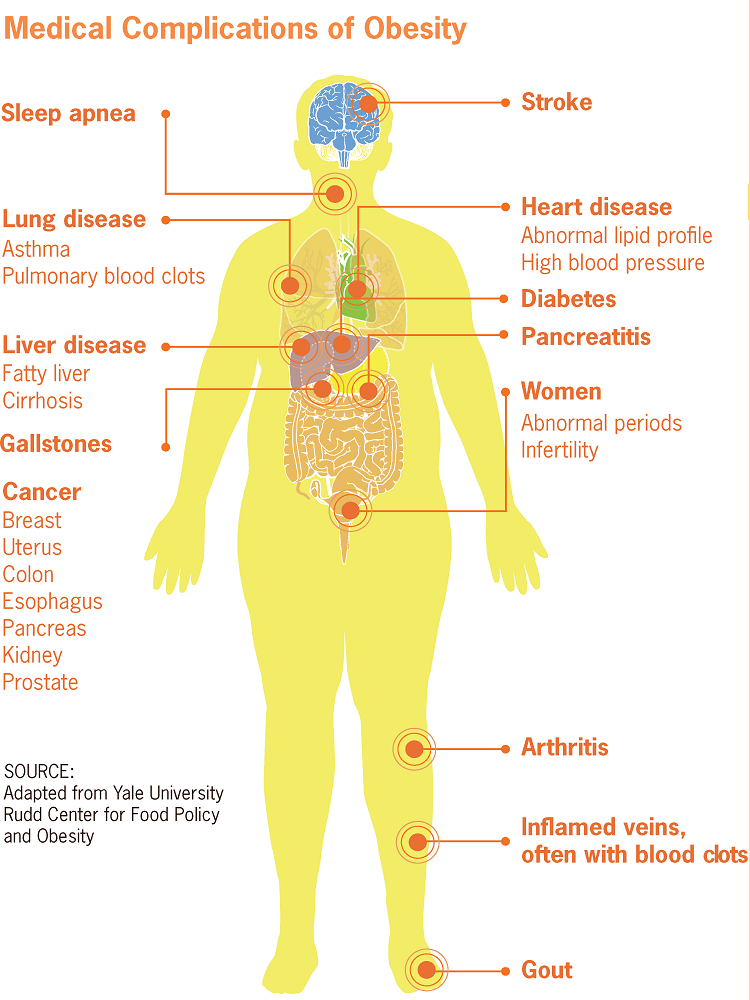
Section Branding
Header Content
Name Change: Obesity
Primary Content

You have probably seen the headline from the recent American Medical Association meeting: obesity is now classified as a disease. This is a controversial and complex decision. Some argue that how much and what you eat is a personal choice, while others point out that there is no effective well established treatment.
Everyone agrees obesity is a major health problem and increases risk of high blood pressure, heart disease, type 2 diabetes, arthritis, sleep apnea, and certain cancers. However, there are differing opinions about whether or not classifying obesity as a disease improves health outcomes. Here are the pros and cons.
The Downside
Making obesity a disease, in some ways, "medicalizes" it. It could intensify reliance on drugs and surgical treatments rather than diet and exercise to attain a healthy weight. It could switch emphasis from focusing on healthy eating and increasing physical activity to achieving "ideal" weight. This focus change could have unintended consequences.
The Upside
Classifying obesity a disease could mean greater investments by government and the private sector in researching causes and triggers, and in developing treatments. It could also improve access to treatment by making it harder for third party payers to deny coverage.
Measuring Obesity and the Obesity Paradox
The current way of measuring obesity is body mass index, a ratio that looks at weight and height. You can use a BMI calculator to find your place in the Index.
Unfortunately, BMI as the measurement of obesity has many limitations. It is useful as a guide, but is not a perfect way to measure body fat. Some people with a "normal" BMI have too much body fat and may suffer metabolic problems. Others with high BMI's in the "obese" range could have plenty of muscle and no excess fat . There are even some studies suggesting an obesity paradox: BMI's in the overweight or obese range may have protective effects on mortality risk.
New Guidelines Under Development
The National Heart Lung and Blood Institute is working on new guidelines it hopes will shed new light on the best way to measure and determine who is obese. Based on their BMI, one third of all American adults suffer this newly categorized disease.
This is serious business.






